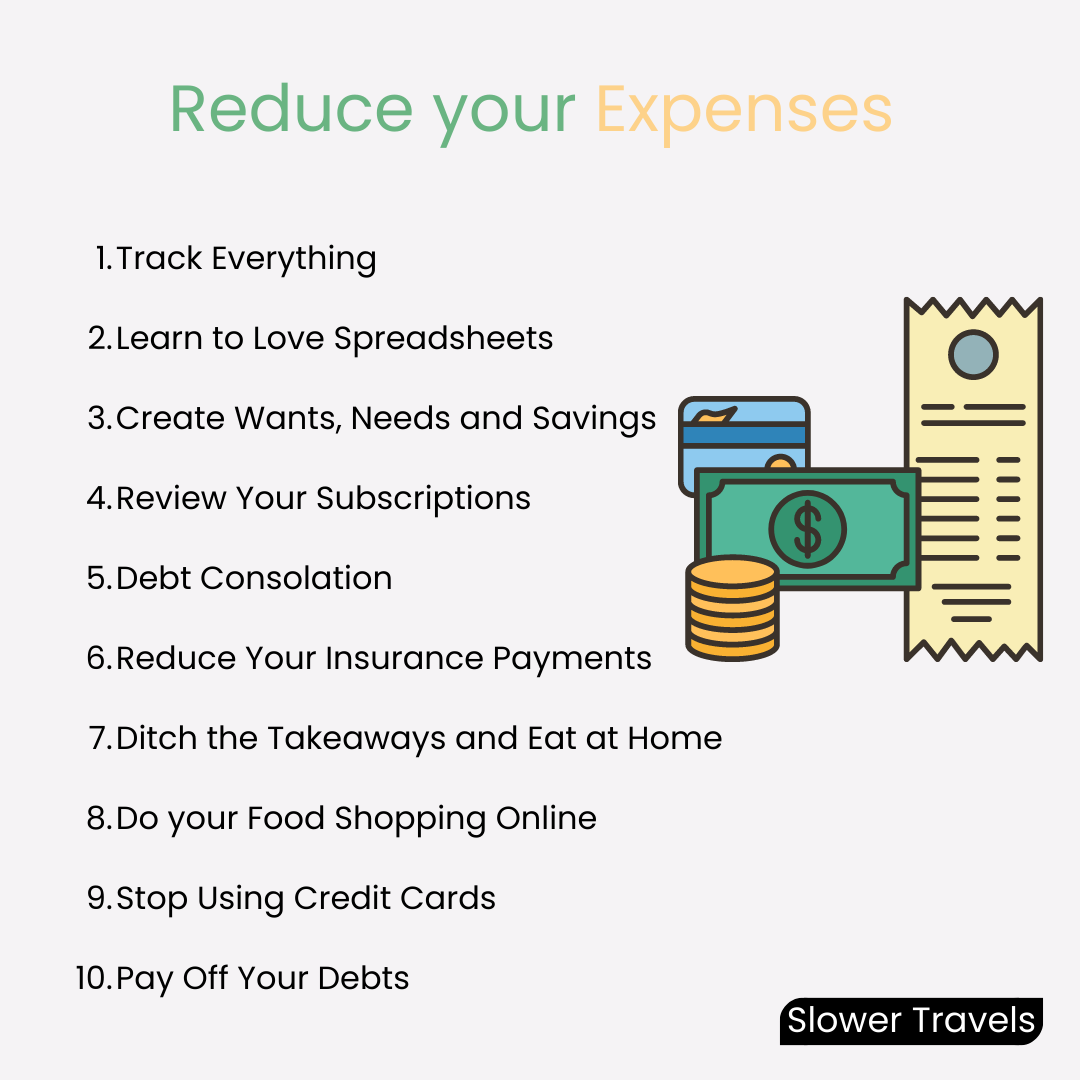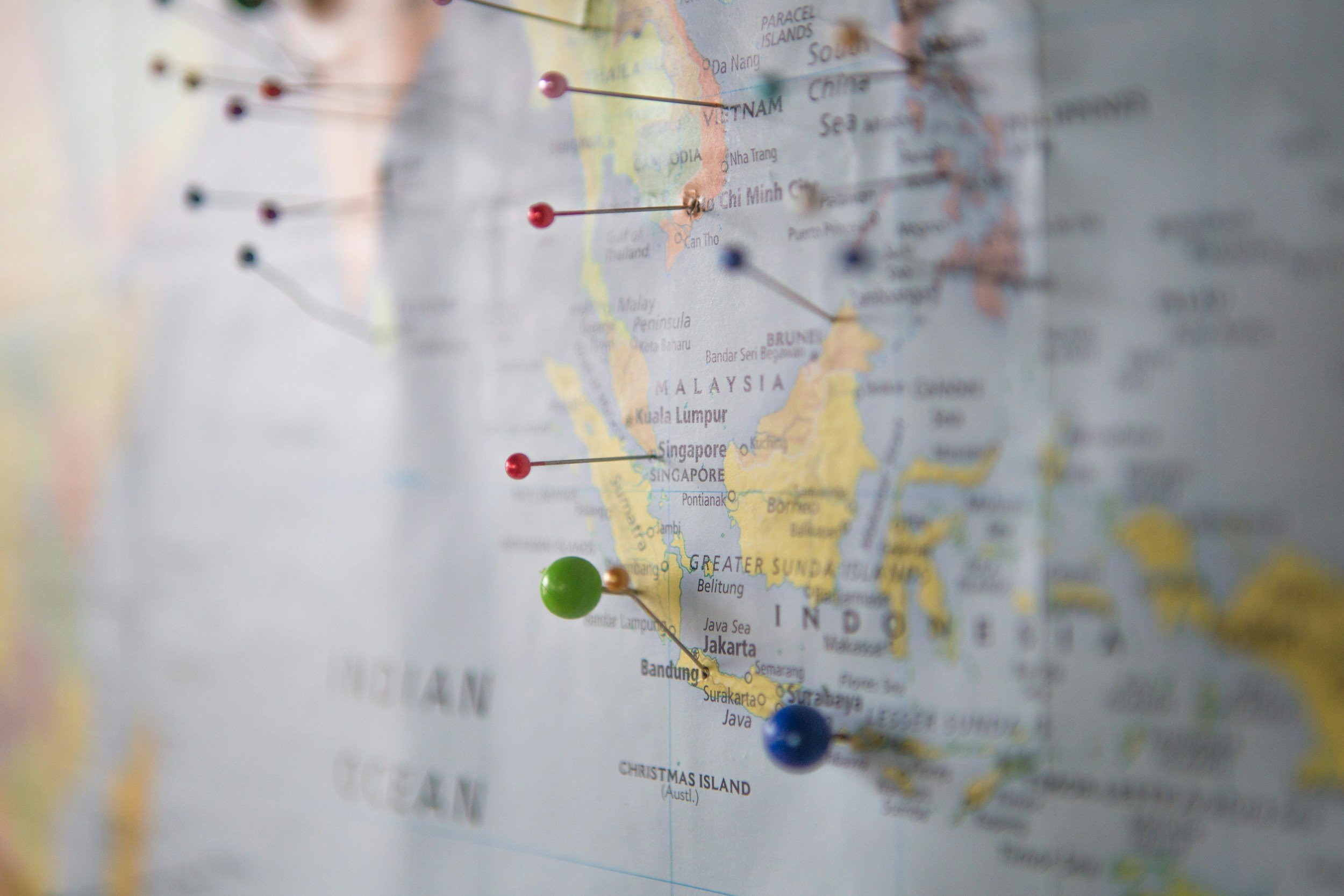How to Reduce Your Expenses
This post may contain affiliate links, meaning we get a commission if you decide to purchase through our links at no cost to you. This helps fund Slower Travels without costing you a cent!
Don’t Be A Consumer
If I had to describe my most detested term, it is hearing people being referred to as consumers. “Hi everyone, meet Kieron. He is a consumer. He consumes things.” Thousands of years of human evolution and now in the 21st century, we are consumers. Our sole purpose and reason for existence on this planet are to consume products and keep the economy humming along. Well, I say enough is enough. Time to take action.
Reducing your expenses is a key component of freedom. To set yourself up as a digital nomad or future minimalist, a meticulous dissecting of the dreaded expense list will help you achieve your dream. By having fewer outgoings, you can begin saving and set up a safety net. Then, if you’re looking for a major lifestyle shift, knowing that you can live on less will help you take that leap. And besides, future experiences will be more interesting (and valuable) than shiny things.
Therefore, it’s key to use a purpose-driven approach to your finances. Just having a vague outline of a goal is often not enough. Working out your key goals including the why behind them is important. This could be “I want to reduce my outgoings, so I can get the hell out of the rat race ASAP.” This sort of goal setting can give you focus when things get tough or you’re tempted by something new with a buy-now-pay-later scheme. For more on this, get started here.
Okay, so now we have our “Why?” behind us, it’s time to get started.
Ten Tips for Reducing Your Expenses
Here are my top ten steps to reducing your expenses. If you like some of these, start implementing them straight away. If some seem too challenging right now, come back later and have another look. The best advice is to just start working on it today. You’ll start moving towards your goals. and believe me, this progress gets exponential, FAST.
Track Everything
There are options that connect with your bank account so you can see where your outgoings are actually going. We use Splitwise to track all our expenses as we spend on a few different accounts. We like free options and Splitwise has done the job for us. Just be disciplined. This allows you to better know exactly where your money is going. You can’t reduce what you don’t understand.
Learn to Love a Spreadsheet
Once you’ve got your raw data, get it into a spreadsheet and track it every month to compare your progress. Once you start seeing your numbers improve, you’ll start to gamify the progress and things, again, will move fast in the right direction.
Create Wants, Needs, and Savings
This is a budgeting process that we’ve dived into more detail about here. Basically, you create three outgoing types: Wants, Needs, and Savings. Then reduce from there. The simplicity of this process allows you to get started sooner than using a complicated budgeting method.
Review Your Subscriptions
Time to go through those monthly subscription services. These are sneaky things that can add up over time. The small monthly payments are attractive simply because they are small. But really, how much do you use them? Are there some that you no longer use and can do without? This isn’t about removing all of them but making sure you’re getting value from those that you are signed up to.
Debt Consolation
Credit card fees are huge, between 16-30% on average. Buy-now-pay-later schemes can be even higher if you miss a payment. If you’re not paying everything off on time, it’s a good idea to get your debt into one place. This makes it easier to see what you own and pay it down faster. The moral of the story is, don’t just make the minimum monthly payments.
Reduce Your Insurance Payments
There are plenty of great ways to protect you and your loved ones. Life, income production, health, and injury insurance. But if you signed up a while ago, you might be overinsured or not be getting the best deal. Next time renewal comes up, compare insurance providers to see if you can reduce your premium. Also, see if you can combine policies to get a discount.
Ditch the Takeaways and Eat at Home
Food prep and eating at home can be a big money saver. Of course, you want to still have fun and hang out with buddies. Most aspiring digital nomads love spending time with other people. But this doesn’t mean not socialising. Instead, invite your mates over, get the cheap beers in and cook a massive curry. Or be selective about which social functions you attend to get the most value and quality time.
Do Your Food Shopping Online
For even the most disciplined amongst us, resisting the multi-million dollar marketing campaigns and design of supermarkets can be tough. Online shopping can be a great way to stay focused on what you actually need, compare prices of products and avoid that extra bag of treats you always get. You know who you are!
Stop Using Credit Cards
Credit cards serve a great purpose if used correctly. But if your card payment is getting away from you, it can be a good idea to simply pause the card for now until you can catch up. Remember, they have a high rate of interest if you are not paying off your balance in full each month.
Pay Off Your Debts
Clearly, if you have no debt, you will supercharge your ability to reduce expenses and get that saving buckets working for you. If you have multiple debts (credit card, loans, buy-now-pay-later) it’s best to pay the most expensive debt off first. Look to see if you can make multiple monthly payments and always pay more than the minimum.
Maximum Effort
If you’re going to kick this dream off, it’s going to take commitment and more adjustments to your spending. In our view, even if you’re still going to work on your digital nomad journey, it’s great to spend less now so you can have a safety net, all whilst learning to exist with fewer luxuries in the day-to-day. This will put you in good stead as a minimalist lifestyle is cheap and easy to maintain. Let’s get things going!




If you’re considering investing in Indonesian real estate, there’s much to consider. Here is our experience to help you on your journey.